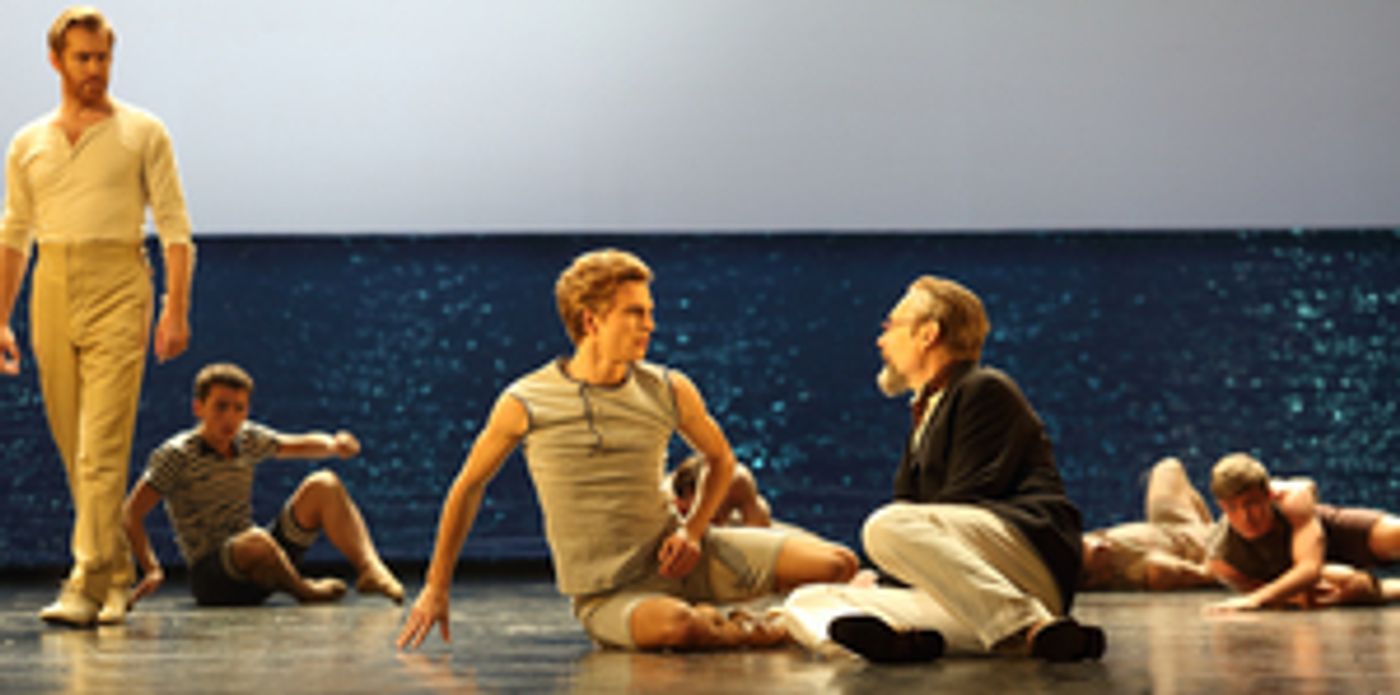Review: DEATH IN VENICE, Royal Opera House

![]() We're inside Aschenbach's mind, the mind of a blocked, depressed writer. We face the daunting prospect of three hours in that ossifying space, but its hall of mirrors, its roiling, restless intelligence, its indecision is instantly enthralling. I was reminded of John Updike's greatest creation, Harry "Rabbit" Angstrom, inside whose head we live for four "state of the nation" novels - and learn much about what's going on in our own psyches in both cases.
We're inside Aschenbach's mind, the mind of a blocked, depressed writer. We face the daunting prospect of three hours in that ossifying space, but its hall of mirrors, its roiling, restless intelligence, its indecision is instantly enthralling. I was reminded of John Updike's greatest creation, Harry "Rabbit" Angstrom, inside whose head we live for four "state of the nation" novels - and learn much about what's going on in our own psyches in both cases.
Death in Venice was Britten's last opera and one can discern the development he underwent after The Turn of the Screw some 20 years earlier. Both were written with librettist, Myfanwy Piper, both are eerie disquisitions on the transgressive nature of desire, and both tell their stories as much, if not more, through the music, music that swirls, dips and dives, but never settles. There are no set piece arias, no toe-tapping Classic FM favourites, nothing you've heard underscoring an advert for a hotel chain. There's just this unrelenting unease.
But there's beauty too in David McVicar's new production. Not just in the object of Aschenbach's what...? Fascination seems too thin a word, obsession too... well too perfumey, captivation too contrived. But captivation might be the right one for how Aschenbach cannot resist the youth's energy, physical perfection, loose confidence. Of course, another word that comes to mind is stalking.
When cholera comes to the lagoon city - the clue's in the title - the townspeople react as they did in the opera's near contemporary Jaws, but still Aschenbach cannot speak to warn the youth's family, as if to do anything beyond looking would breathe life (and with it the messy business of human faults and foibles) into this animated Michelangelo statue. And so the sweet, sweet torment continues.
Like much of the very best art, any attempt to reduce its wholeness into mere words fails. This is, for all the virtuosity of Mark Padmore's performance (and, on stage pretty much throughout, its an incandescently brilliant demonstration of his art), is an ensemble piece. That said, he gets super support from Gerald Finley in a range of roles and Tim Mead's countertenor is appropriately otherworldly as Apollo.
The story - the ideas really - is told as much by Richard Farnes' oft dissonant orchestra, by a chorus that is usually kept out of sight, but shimmers into the house to stand ghostly amongst us, to the dancers who lark about, fidgeting and fighting on the Lido's beach, like Jets and Sharks. Also to designer, Vicki Mortimer's, costumes and sets that feel Fin de Siècle, the First World War still too far away to encroach directly on the hotel guests, but lingering in the air, a foreboding every bit as real as the bacteria that lurk in the still, warm, lethal waters.
The 17 scenes, all handsome, all touched by melancholy, come and go in the blinking of an eye, the music whispering in our ears, Padmore's compelling voice demanding attention, the youth Tadzio (Leo Dixon, a blond ballet dancer with something of Sergei Polunin's dangerous charisma) a sight that would draw any eye. You're busy unravelling one thought as two more crash in - all the while aware that your senses are being seduced as much as Aschenbach's.
One would expect pejorative descriptors like self-indulgent, introspective and infantile to lurk somewhere in some reviews of this work - three hours with an emotionally constipated anti-hero can be a long time - but that's where opera has the drop on other art forms. We see the man stripped down through so many different and complementary vectors, that his humanity is never compromised, his anguish never overpowers, his neuroses never curdles to self-pity.
It's quite a show.
Death in Venice is at The Royal Opera House until 6 December.
Photo Catherine Ashmore
Reader Reviews
Videos

